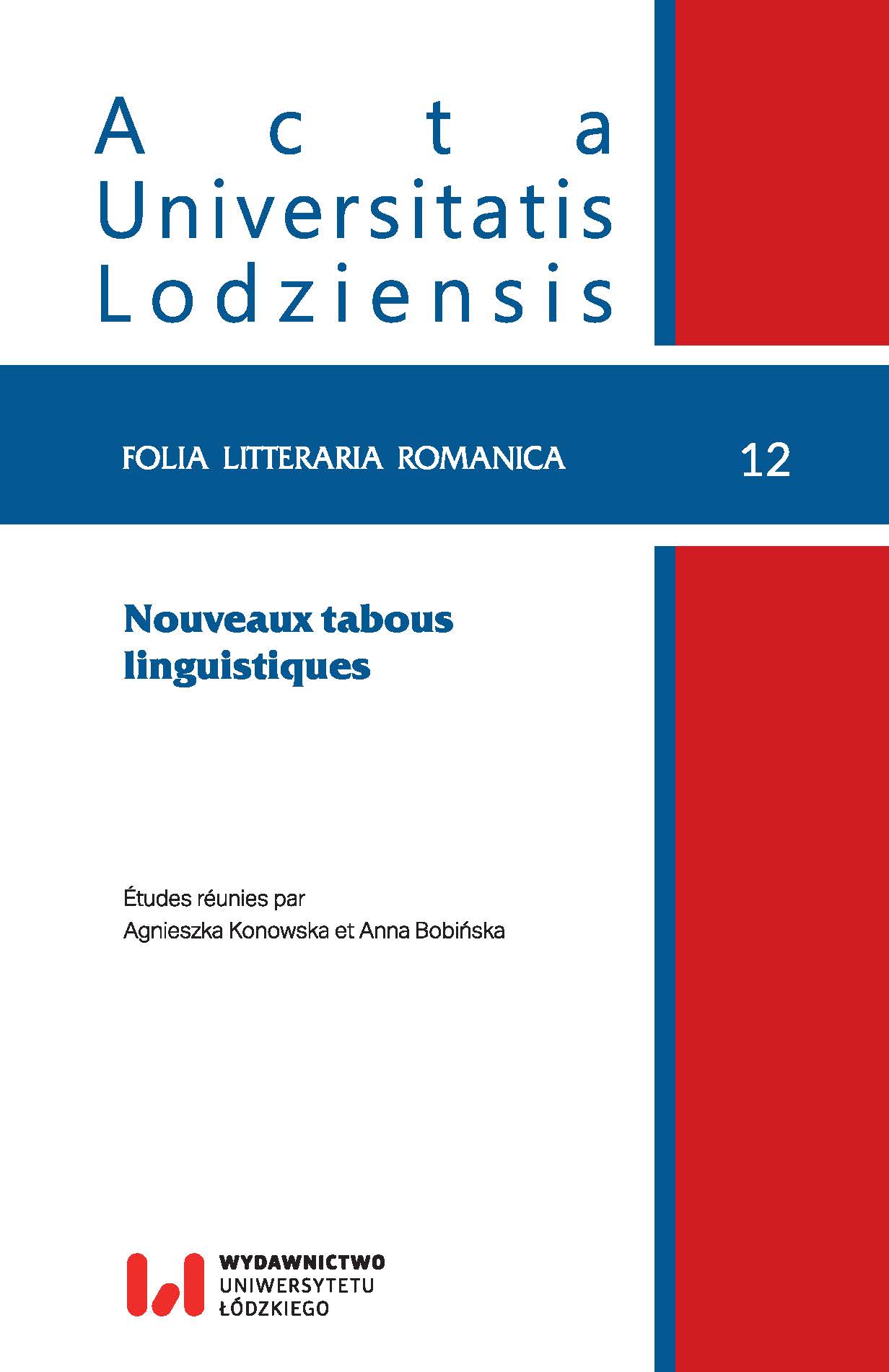The practice of renaming following the example of politically correct
DOI:
https://doi.org/10.18778/1505-9065.12.03Keywords:
political correctness, renaming, taboo, ethicsAbstract
This article explores the substitution of words considered as offensive that designate marginalized and stigmatized social groups over time. The substitutions, framed in the politically correct discourse, are renamings that go against certain traditional naming ways perceived by a broad social sector as obsolete, according to an ideology which tries to remove from the vocabulary everything implying discrimination, to promote an orthodoxy of moderation and reduce the linguistic inequality in the way of referring to the strong and the weak. Thus the speaker stands between the need for freedom of expression and that of adopting ethical conduct.
Downloads
References
Andrews Edna, « Cultural sensitivity and political correctness: the linguistic problem of naming », American Speech, 1996, 71/4, p. 389–404
Google Scholar
Bonhomme Marc, Pragmatique des figures du discours, Paris, H. Champion, 2005
Google Scholar
Bosredon Bernard, Les Titres de tableaux : une pragmatique de l’identification, Paris, PUF, 1997
Google Scholar
Delporte Christian, Une histoire de la langue de bois, Paris, Flammarion, 2009
Google Scholar
Gomis van Heteren Annette, Political Correctness in Context. The PC Controversy in America, Almería, Servicio de Publicaciones de la Universidad, 1997
Google Scholar
Gonac’h Jeanne, « Pratiques de redénomination des rues à Vitrolles », in L’Acte de nommer. Une dynamique entre langue et discours, éd. G. Cislaru, O. Guérin, K. Morim, É. Née, T. Pagnier, M. Veniard, Paris, Presses de la Sorbonne nouvelle, 2007, p. 101–114
Google Scholar
Halmari Helena, « Political correctness, euphemism, and language change: the case of “people first” », Journal of Pragmatics, 2011, 43, p. 828–840
Google Scholar
Kleiber Georges, « Dénomination et relations dénominatives », Langages, 1984, 19, p. 77–94, URL : http://www.persee.fr/doc/lgge_0458-726x_1984_num_19_76_1496
Google Scholar
Krieg-Planque Alice, Analyser le discours institutionnel, Paris, A. Colin, 2012
Google Scholar
Kristol Andres Max, « Motivation et remotivation des noms de lieux: réflexions sur la nature linguistique du nom propre », Rives méditerranéennes, 2002, 11, URL : https://rives.revues.org/121
Google Scholar
López Díaz Montserrat, « L’euphémisme, la langue de bois et le politiquement correct : changements linguistiques et stratégies énonciatives », L’Information grammaticale, 2014, 143, p. 47–55
Google Scholar
López Díaz Montserrat, « Insultes, propos déplacés et “incorrection politique” autour du sport », Revue d’études françaises, 2015, 20, p. 121–135
Google Scholar
Moirand Sophie, « Responsabilité et énonciation dans la presse quotidienne : questionnements sur les observables et les catégories d’analyse », Semen, 2006, 22, URL : http://semen.revues.org/2798
Google Scholar
Robert-Lamblin Joëlle, « Esquimaux ou Eskimo », Encyclopædia Universalis, URL : http://www.universalis.fr/encyclopedie/esquimaux-eskimo/
Google Scholar
Siblot Paul, « Nomination et production de sens : le praxème », Langages, 1997, 127, p. 38–55, URL : http://www.persee.fr/doc/lgge_0458-726x_1997_num_31_127_2124
Google Scholar
Trésor de la langue française informatisé (TLFi) : http://atilf.atilf.fr/tlf.htm
Google Scholar
Widłak Stanislas, « L’interdiction linguistique en français d’aujourd’hui », Revue belge de philologie et d’histoire, 1965, 43/3, p. 932–945
Google Scholar
Downloads
Published
How to Cite
Issue
Section
License

This work is licensed under a Creative Commons Attribution-NonCommercial-NoDerivatives 4.0 International License.













